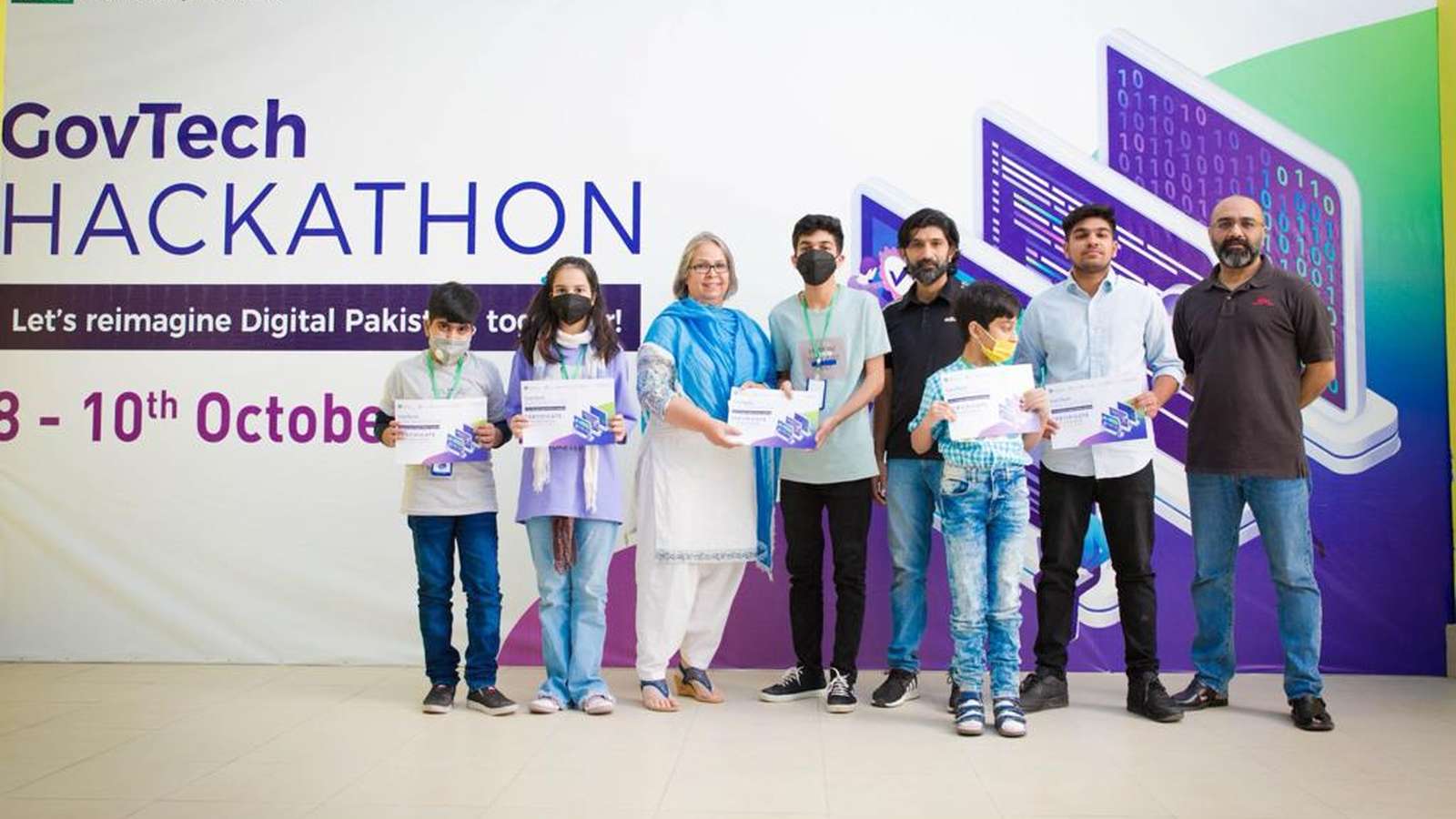
A New World Order
Covid-19 hit the globe, taking us all by surprise. As the rest of us scrambled to make sense of the impending pandemic and its increasingly cumbersome restrictions, there was a group of budding teenagers who found their own way to solace. In the city of Peshawar, Khyber Pakhtunkhwa, a family of avid gamers resorted to the virtual universe, building their own little world. Minecraft became 14-year-old Khushbakht Zeeshan, fondly known as ‘Khushi', and her 12-year-old cousin Mohaid Nouman's new hangout. And that's how it all began.
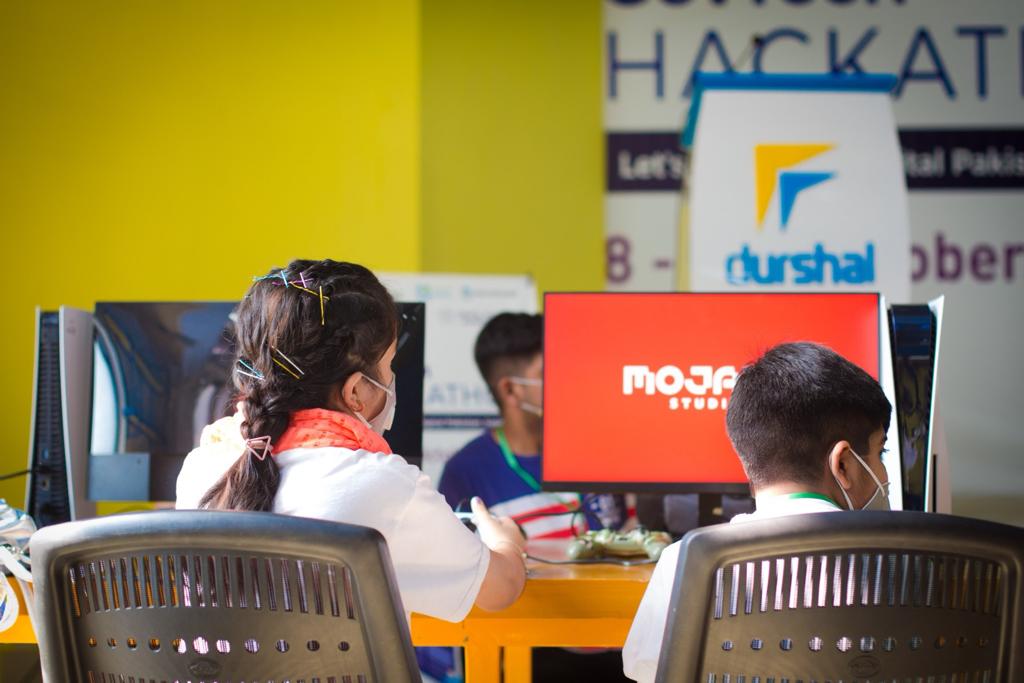
The kids were just looking for a way to stay connected with their friends when they first started gaming years ago. "My brothers used to play all sorts of games," Mohaid tells me. "Watching them, I became so fascinated by all the ways we could use our imagination. Especially with Minecraft". "Even our Uncle Ali plays with us," Khushi says, and I realize it's a highly treasured family activity.
"One time, Mohaid's older brother snuck animals into all of our houses," Khushi recalls. "Everything was completely wrecked, and we had to start rebuilding," Mohaid tells me, laughing at the memory.
They weren't too upset though- when I asked them if they tried to take revenge. Just ready to make something new again. "The opportunity to put your imagination to work and create something of your own is a different kind of satisfying feeling," the kids explain to me. Maybe that's why Mohaid can't get enough of making Minecraft farms any chance he gets.
From Hobby to Hackathon
It was just another day with the kids immersed in their gaming routine, when their Uncle Ali came to them, excited about a GovTech Hackathon by Code for Pakistan he'd found out about, taking place in their very own city- Peshawar. Uncle Ali is not only a seasoned gamer, but also a very accomplished developer who loves making his own side projects with software. After realizing the broad and inclusive age range for the Hackathon participants, he immediately thought of the kids.
Code for Pakistan's Hackathon is an annual event where creative individuals have the chance to showcase innovative solutions to a set of problem statements. Often, they focus on the UN Sustainable Development Goals. Always, with an aim to serve the community at large.
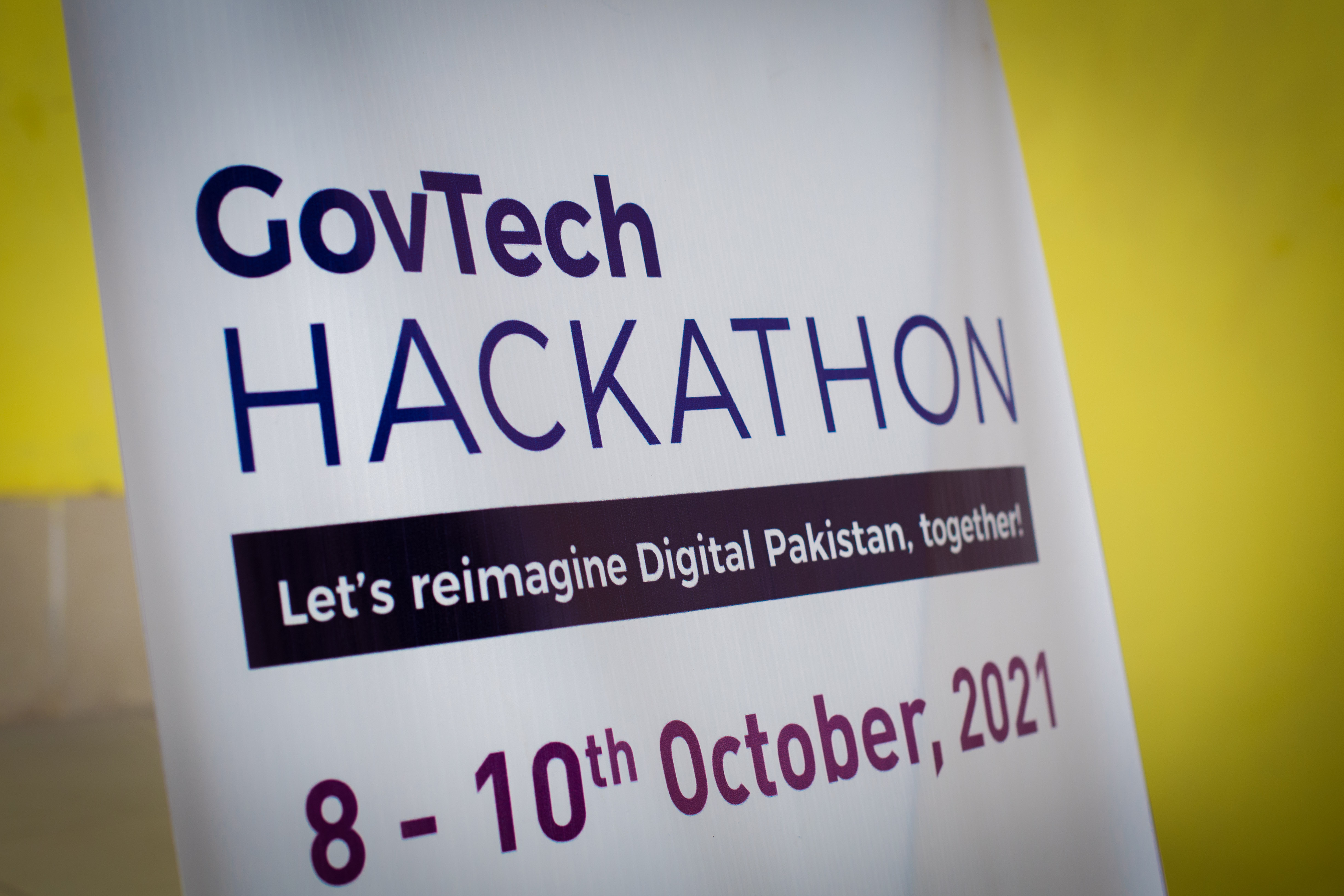
It was an exciting opportunity that would need a lot of preparation, the kids thought.
The good thing was, they already had an idea to present- that too in the area of their expertise! (Yes, you guessed it- Minecraft)
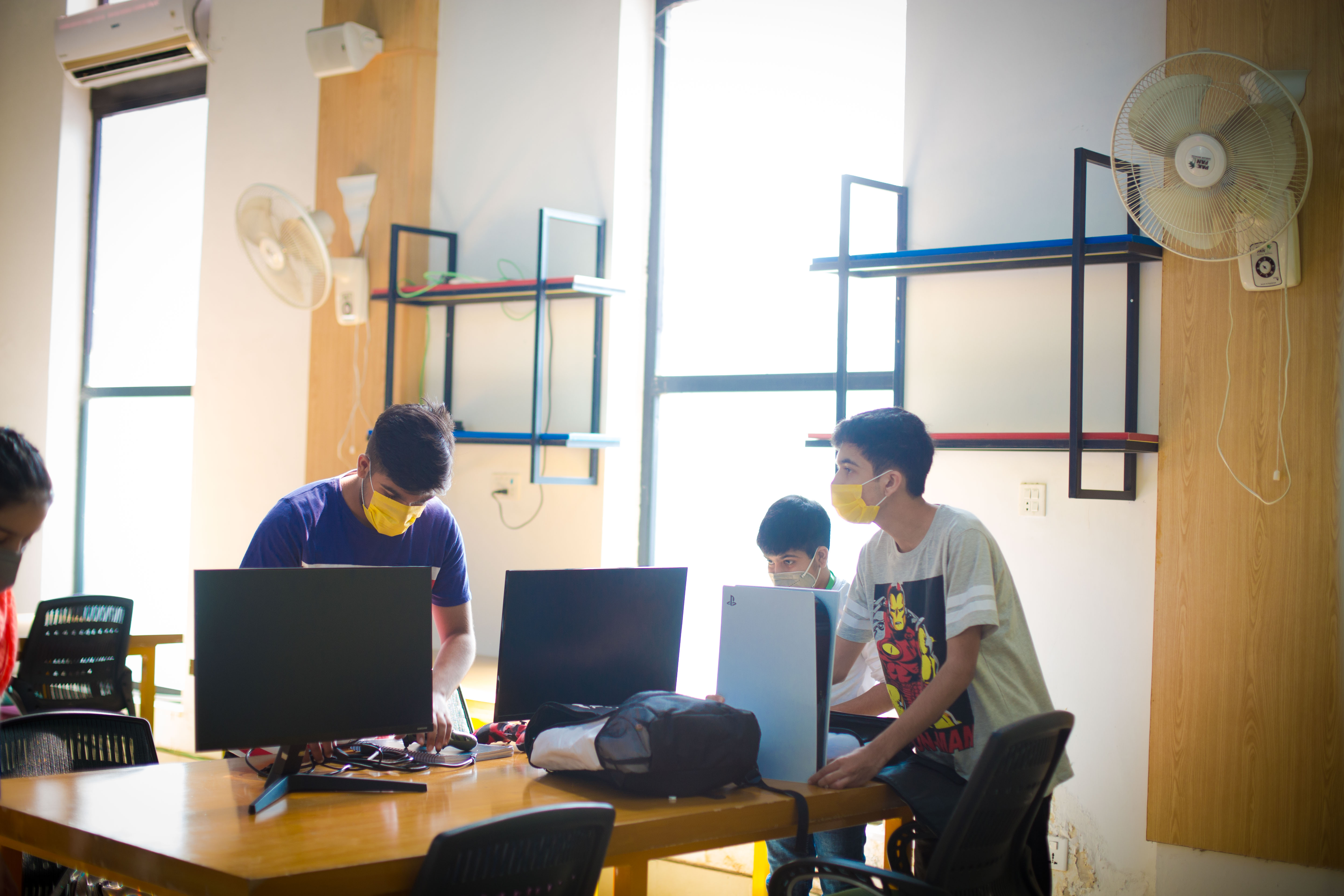
Shalman Park 2.0
Khushi, Mohaid, and his older brothers Momin and Hassan Raza teamed up to design a park on Minecraft- modeled after Shalman Park, a known local in Peshawar. Unlike the real Shalman Park which is poorly populated by visitors and a few benches here and there, the virtual Shalman Park is architectured as a community hub. A place where everybody can come, relax, enjoy nature and maybe even get some exercise in.
Hassan started off with a floor plan that would account for the dimensions of virtual Shalman Park. Based on measurements that he and the others had gauged after a few visits to the park, Hassan assigned each of the kids a specific area to work on.
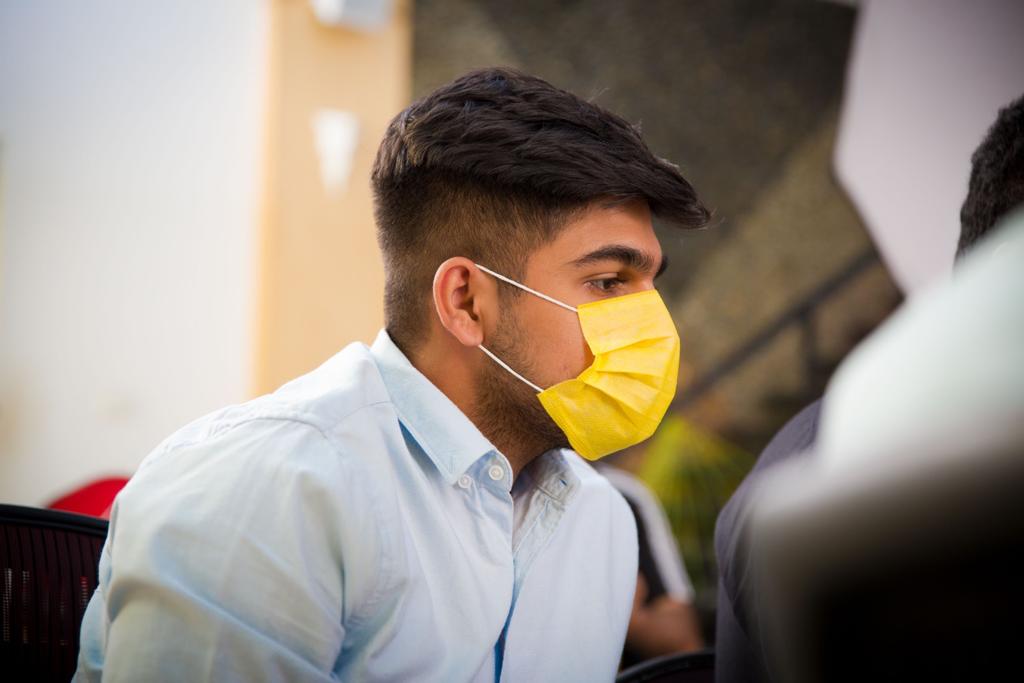
"Shalman Park is so big. It has so much potential, it's unfortunate that the way it is right now, not many people go there. There's nothing but a few lonely benches on vast land with scarce grass," Mohaid says wistfully.
A manifestation of the quad squad, virtual Shalman Park comes with swings and play areas- not only for older children but also a dedicated space for toddlers. An outdoor gym where visitors could keep their health in check. A cafeteria to enjoy a bite with friends and family. And plenty of lush green space where people could play sports. All of these additions fulfilling SDG #3: Good Health and Well-Being.
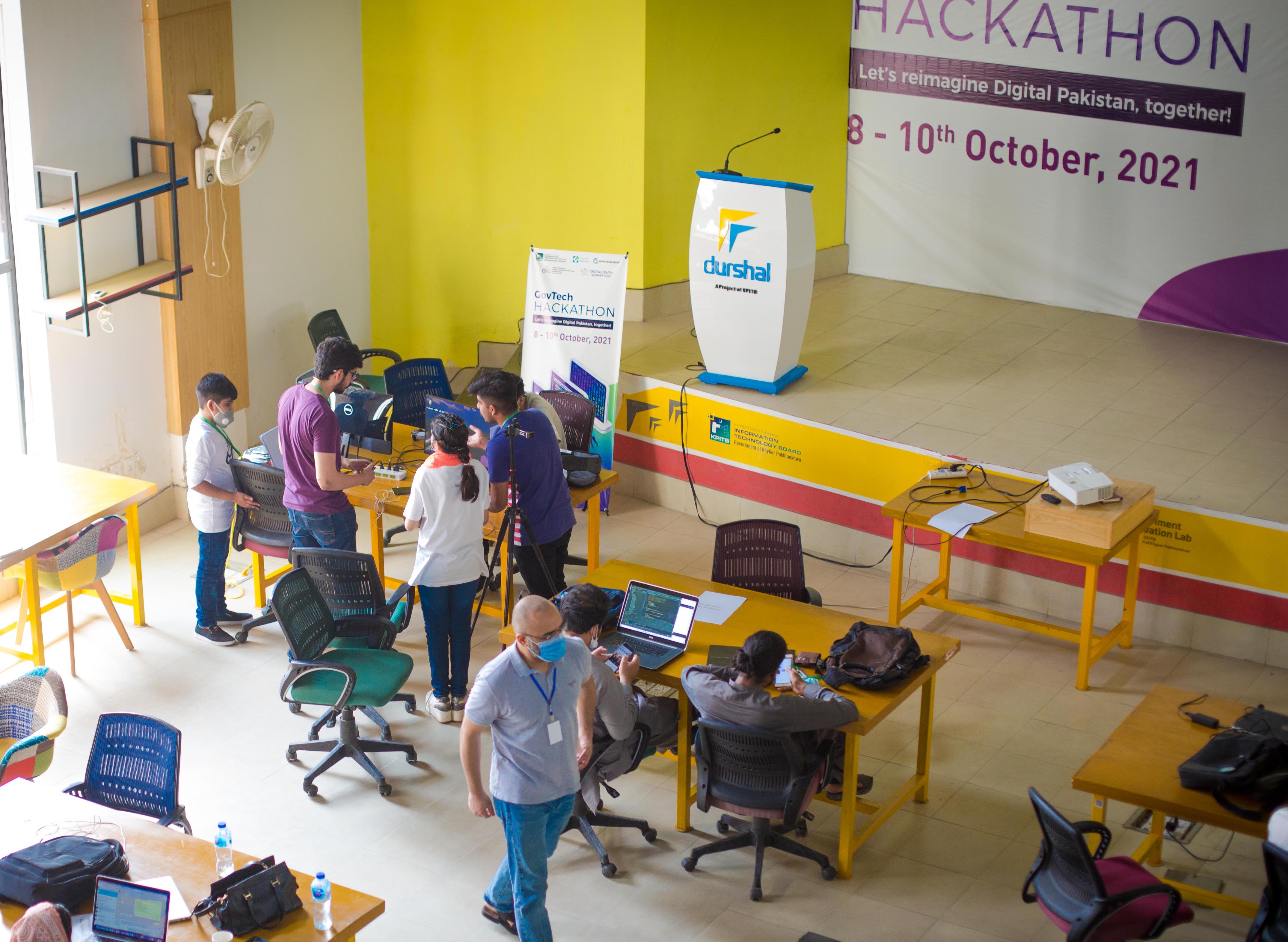
Some people weren't impressed though, Khushi and Mohaid tell me. "This guy came by our table during the Hackathon. He didn't really understand what we were doing, or how it would really benefit the community. He seemed to think we were just some kids playing some games," Khushi recalled.
Except there was a purpose to it. One that even the esteemed judges could see when they earnestly praised the kids' project. They didn't win the competition, but they sure did leave a mark. These budding teenagers put together an amalgamation of the kind of park they aspire to go to, encompassing spaces for the various members of their community into their design. They took initiative to engage and participate in building their own community. This is the crux of progressing as a community; to see oneself as a part of it. An attitude of responsibility and belonging.
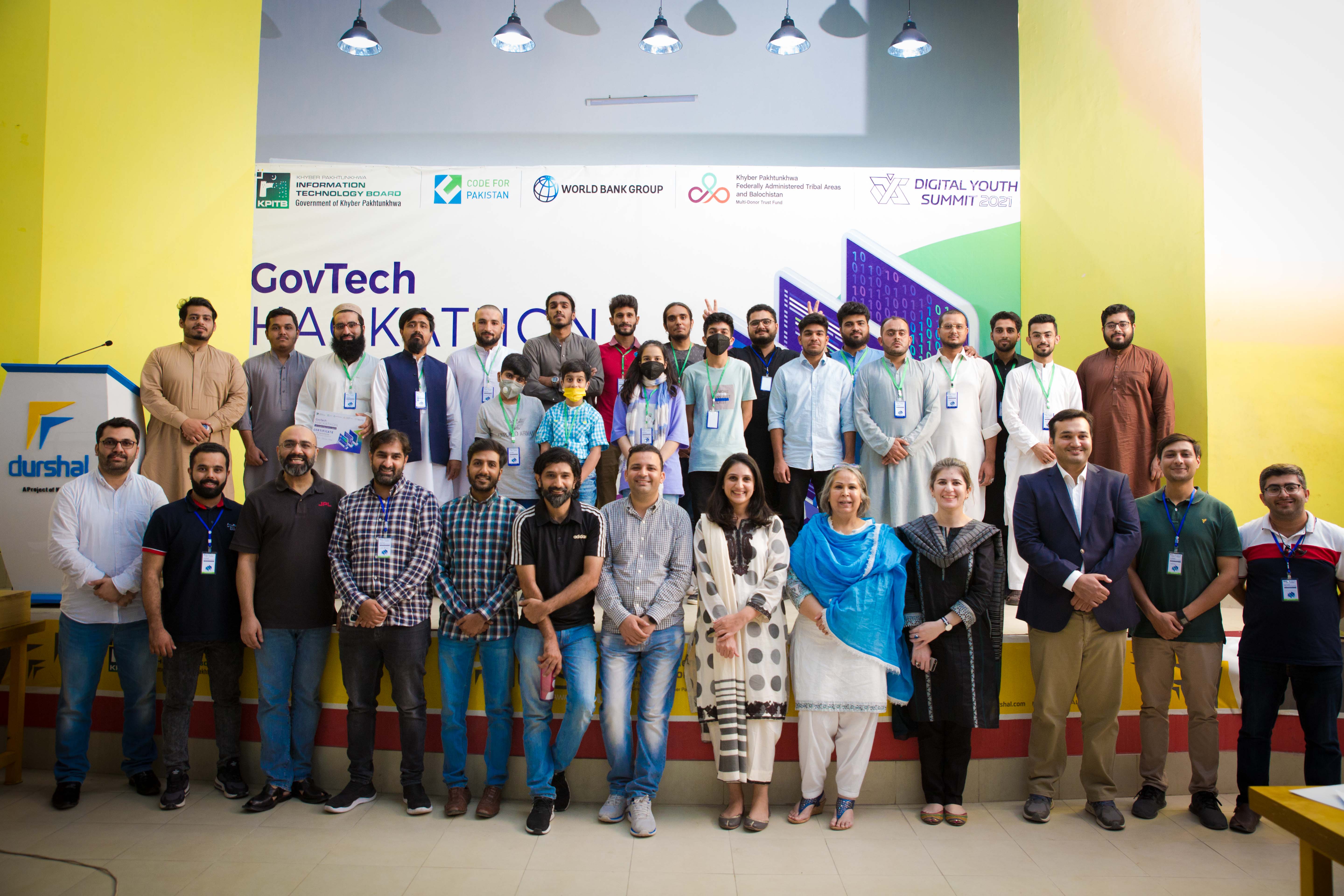
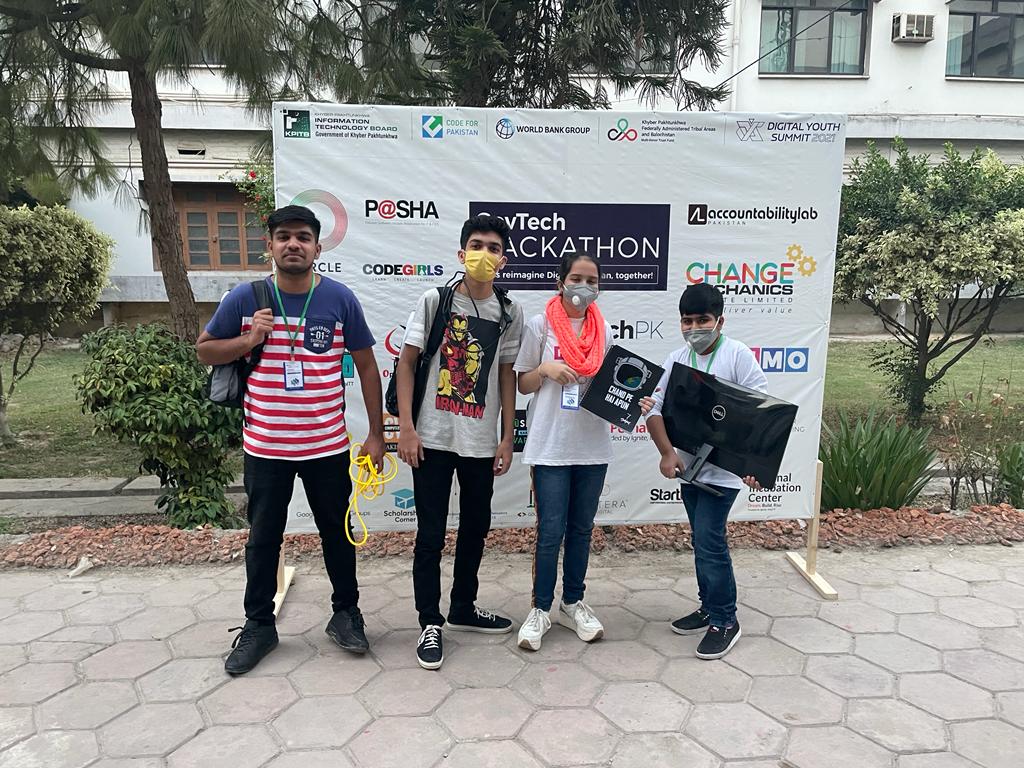
As the kids relate their story to me, I notice profound nuance in their understanding of the kind of place they'd like to live in. Their aspirations reflect the progressive approach they have to the world around them. When I ask Mohaid what he wants to do when he grows up, he doesn't hesitate to list all the cool apps he wants to design once he becomes a developer, just like his beloved Uncle Ali. He even details how exactly he plans to progress throughout his career. Khushi's professional ambitions are more sentimental. She hopes to become an esteemed judge, a dream her late grandmother had for her that she now keeps close to her heart.
"Our children are the rock on which our future will be built, our greatest asset as a nation. They will be the leaders of our country, the creators of our national wealth who care for and protect our people." - Nelson Mandela